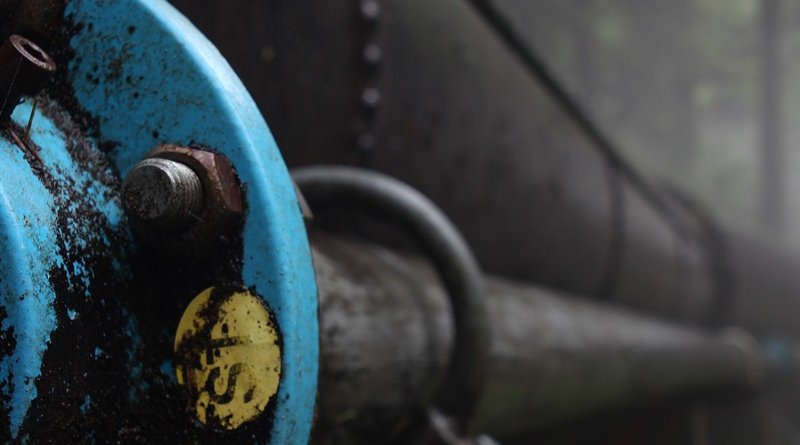The Russian-Ukrainian War Triggers An Energy Revolution – Analysis
By Published by the Foreign Policy Research Institute
By Anton Antonenko*
(FPRI) — As the first sounds of Russian missiles woke up people in various Ukrainian cities and towns in the early morning of February 24, 2022, they also marked a significant watershed in the history of energy. The fact that Russia started an unfair and unjustified war of aggression in the middle of Europe became a perfect end to a long-played Russian strategy in which it pretended to act as a standard oil and gas business simply interested in profit. Instead, as the war in Ukraine and its shutting down gas supplies to Europe in recent months demonstrates, the Kremlin always considered its energy supplies as a weapon that could be used in a crisis.
In the energy sector, tectonic changes usually take time—the energy transformation in Europe is now going at lightning speed. This winter can become the last when Russia can still influence the global energy agenda.
Russian Energy and Ukraine
Before 2022, Russia often applied its energy leverage over Ukraine. Russians offered price discounts and favorable conditions for purchasing gas in exchange for political loyalty and making “right” political decisions. Russia punished the country’s leadership that dared not to agree to its terms by creating energy crises, blackmailing with higher gas prices, and withholding supplies. Of course, Russia has long had sympathetic friends among political and commercial elites in Ukraine and EU member states. A key recruitment tool was for Russian energy companies to hire retired high-level politicians from target countries.
In 2006 and 2009, Russia waged gas wars against Ukraine and tried to manipulate the European Union. It has also tried this several times until it was ready for the grand play of 2021, when Russian manipulations with gas storage across Europe together with blackmail trying to push for the launch of the political project Nord Stream 2 largely contributed to skyrocketing gas prices. EU decision-makers seem to finally appreciate that Russia uses energy supplies for geopolitical purposes. However, the lobbyists still are working to persuade us that the price hike in 2021 was a mere coincidence of several unrelated factors.
The decisions about supplying Europe energy that Russia has made during the war are outrageous and include changing the contract currency to Russian rubles; cutting supplies (including fully to some European consumers); manipulating Ukrainian transportations route, lowering the exported load; and artificially reducing or stopping Nord Stream 1 route to put more pressure on Europe. Russia has made a bet on persuading Europe that Russian energy is a key to global energy use.
However, the European Union has taken a lot of positive steps in response to Russian aggression. It recently adopted the RePowerEU package that clearly states its goal of decoupling Europe from Russian energy. Several packages of well-coordinated sanctions include phasing out coal and oil use in the European Union. For now, it seems like Europe has learned the lessons of the previous year, as there is a debate about regaining control over critical energy infrastructure in some EU countries. In addition, even the largest markets for Russian energy resources are very vocal about changing their strategy to avoid Russian fuel.
Having made the first steps to prove it is using energy as a weapon in terms of oil and gas, it is now focused on the nuclear sector. Russia captured two nuclear power plants in Ukraine. While the Ukrainian army effectively fought the Chornobyl nuclear power plant back, Russia still uses the biggest European nuclear power plant in the city of Energodar for blackmail. It not only positioned its military personnel and equipment at the facility, but also stationed Rosatom workers there, tortured and killed Zaporizhzhia nuclear power plant personnel representatives, and shelled the territory of the nuclear power plant to cut it off from the Ukrainian grid. This move effectively put Russian actions in the exclusive place for energy terrorist countries that use all available resources as a weapon in the exact meaning of this word.
What is the Russian game in this case? Some in the Kremlin seem to believe that at some point the Europeans will be in such a fear over high energy prices and the risk of a nuclear accident in Ukraine that they would beg Russians to return to the status quo ante. Russian officials expect that energy prices will be higher in the winter and the European Union will have to do some unpopular steps to maintain its energy supplies and balances. However, Russia is fully wrong in at least one assumption. After Russia’s brutal and deadly invasion of Ukraine, the road back to how things were before no longer exists. Moreover, Europeans have taken steps to mitigate against possible shortages in the winter.
Chances are high that this winter will be hard for many Europeans, especially Ukrainians. However, the continent is preparing for the worst, and Europeans can survive a difficult winter, particularly if the alternative is capitulation to Moscow.
The views expressed in this article are those of the author alone and do not necessarily reflect the position of the Foreign Policy Research Institute, a non-partisan organization that seeks to publish well-argued, policy-oriented articles on American foreign policy and national security priorities.
*About the author: Anton Antonenko is the vice president and co-founder at the DiXi Group think tank.
Source: This article was published by FPRI

